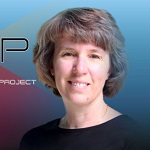Talia Gershon
Director, Research Strategy & Growth Initiatives
IBM
Talia Gershon is responsible for driving initiatives that maximize the impact of IBM Research on their company, including transforming the way researchers define and deliver their work, defining a technology outlook that shapes the future of the company, and incubating and accelerating select emerging technology and business opportunities to their next phase of growth.
HPCwire: Congratulations, Talia. Even though a useful quantum system is still years away, the technology has so much potential that it commands a lot of attention, including, of late, skepticism. What do you make of the criticism that quantum will never work due to the scale of error correction involved?
Talia Gershon: Well, I would argue that even today’s systems are very useful. Today’s public, open IBM Q Experience 5-qubit and 16-qubit devices are being used by more than 110,000 people all over the world. They’ve run more than 7 million experiments, and published more than 130 research papers on topics that range from fundamental theory, to algorithms that could be used in machine learning computation. So, while they are not powering apps on your phone today, scientists can still use these systems to learn about, and lay the foundation for what quantum computers will be able to do one day when they reach more maturity.
In October of last year, my colleague Dr. Sergey Bravyyi and other collaborators, published Quantum Advantage with Shallow Circuits, which was the first ever mathematical proof that even near-term “noisy” quantum computers have the potential to solve certain problems faster than classical computers, which will guide the development of future quantum algorithms.
Think back to the 1950s, when classical computers were in their early days, and put yourself in the thinking of the day. No one could have imagined the impact that those machines would have on society. We believe we’re entering into a similar era now with quantum computing. Now is the time to get “quantum ready” and explore what we can do with quantum computers across any number of potential application areas and industries.
HPCwire: How far is IBM from delivering a quantum system that outperforms the most powerful classical supercomputers?
Quantum computers and classical computers will work together for the foreseeable future. For example, quantum computers are accessed via cloud computing, and we need classical computers to interpret the results of algorithms run on quantum computers.
Within the next five years, IBM believes that the capabilities of quantum computing – alongside classical computers – will reach beyond the research lab. That point will be marked by a “quantum advantage” for solving certain kinds of problems.
HPCwire: IBM famously offers access to its quantum technology on its cloud platform. What do people see when they access it and what can they do with it?
IBM offers public access to 5-qubit and 16-qubit devices through the IBM Q Experience. There are a few different ways that people in the community can access these systems and use them. Beginners can use the Q Experience’s composer, which looks like a musical staff that corresponds to the selected device’s gates. It’s a good way to understand the basics, using well-known quantum algorithms.
More advanced users develop their own programs with Qiskit – our open source quantum information science kit software platform. Qiskit allows users run advanced experimentation, like studying noise in quantum systems, optimizing quantum circuits, and exploring quantum algorithms. We’ve made it easy to install Qiskit with basic commands and offer tools that aid programmers who use VSCode as their code editor. Alternatively, users can program and experiment in Jupyter notebooks, it’s up to them.
HPCwire: How is IBM’s quantum development strategy different from the other companies who are also out in front pursuing quantum computing?
I can’t speak for the competition, but a big part of our strategy has been to offer the IBM Q Experience as an open ecosystem to drive faster, broader progress in quantum computing by the extended community. This has also enabled us to develop our program in a way that maximizes utility for a wide group of people, including students, teachers, researchers, and early adopters in commercial companies via the IBM Q Network. We have partnered with a number of Fortune 500 companies, academic institutions, and research labs who can access our most-powerful 20-qubit systems, the IBM Q System One, which is the industry’s first, fully integrated universal quantum computing system, designed and built to scale scientific and commercial use. The organizations in the Q Network can collaborate with IBM Q scientists, as well as one another to develop practical quantum applications for their industries.
HPCwire: Outside of the professional sphere, what can you tell us about yourself – personal life, family, background, hobbies, etc.? Is there anything about you your colleagues might be surprised to learn?
I spent most of my academic and professional career as a materials scientist, actually. My PhD and early career research focused around developing next-generation thin-film materials for photovoltaics (PV) applications, i.e. cheap and abundant solar cells. At the time, Silicon PV was expensive and there was a significant effort in the research community to discover alternatives that could lead to mass adoption of solar energy. Even though I’ve moved into a new stage of my career, I still have a passion for materials science and deepening my understanding the physical world in order to envision breakthroughs for the future.












































